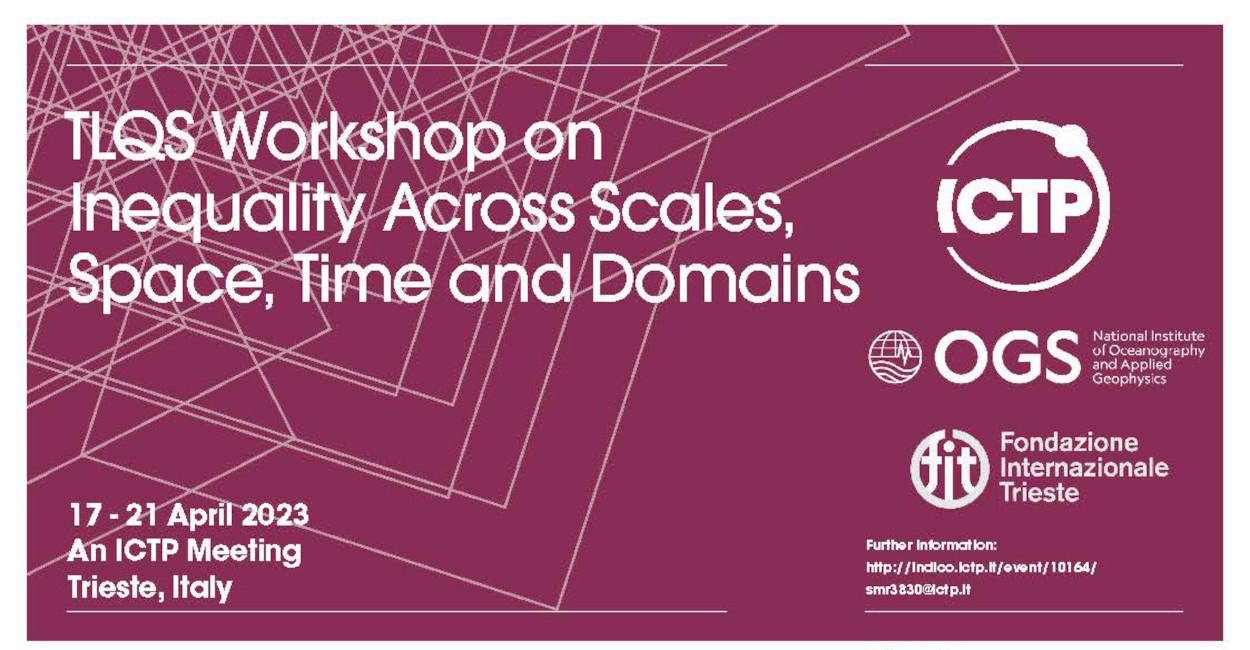Different views on inequality and how to reduce it
Inequality is generally perceived as a cause of concern and one of the prime roadblocks towards a sustainable future. Indeed, the Sustainable Development Goal 10 is worded “Reduce inequality within and among countries”, with the following ten targets:
- By 2030, progressively achieve and sustain income growth of the bottom 40 per cent of the population at a rate higher than the national average;
- By 2030, empower and promote the social, economic and political inclusion of all, irrespective of age, sex, disability, race, ethnicity, origin, religion or economic or other status;
- Ensure equal opportunity and reduce inequalities of outcome, including by eliminating discriminatory laws, policies and practices and promoting appropriate legislation, policies and action in this regard;
- Adopt policies, especially fiscal, wage and social protection policies, and progressively achieve greater equality;
- Improve the regulation and monitoring of global financial markets and institutions and strengthen the implementation of such regulations;
- Ensure enhanced representation and voice for developing countries in decision-making in global international economic and financial institutions in order to deliver more effective, credible, accountable and legitimate institutions;
- Facilitate orderly, safe, regular and responsible migration and mobility of people, including through the implementation of planned and well-managed migration policies;
- Implement the principle of special and differential treatment for developing countries, in particular least developed countries, in accordance with World Trade Organization agreements;
- Implement the principle of special and differential treatment for developing countries, in particular least developed countries, in accordance with World Trade Organization agreements;
- By 2030, reduce to less than 3 per cent the transaction costs of migrant remittances and eliminate remittance corridors with costs higher than 5 per cent.
Interdisciplinarity is mandatory
It is then no surprise that many scientists from various fields of science (demography, economics, political science, sociology, ecology, biology, anthropology, neuroscience, etc.) are working to improve our understanding of inequality, its origins, its mechanisms, and how to tackle it. However, they won’t go very far if each of them stays within the limits of its own discipline.
From 17th to 21st April 2023, the Trieste Laboratory on Quantitative Sustainability and ICTP organized a workshop on inequalities so that some of these scientists could discuss their different perspectives on all topics surrounding inequalities. Perspectives and insights from a broad range of disciplines were combined with complex systems modelling approaches, in order to capture relevant stylized facts, identify questions amenable to quantitative mechanistic modelling, or devise data-driven modeling approaches which may shed light on causal relations.
Watch the testimonies of some organizers, speakers and attendants of this workshop.
-

Stefano Fantoni, from the Fondazione Internale Trieste talks about quantitative sustainability
-

Giovanni Carrosio, University of Trieste, talks about the scientific study of inequalities
-

Elisa Omodei, Central European University, talks about data science for zero hunger
-

Cosimo Solidoro, Italian Institute of Oceaongraphy and Applied Geophysics, talks about inequalities
-

Mirta Galesic, from Santa Fe Institute, speaks about changes in human collective adaptation







